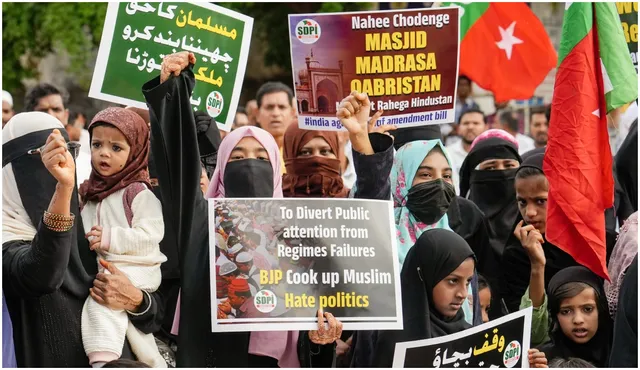- By Shubham Bajpai
- Mon, 02 Jun 2025 11:32 PM (IST)
- Source:JND
The central government will launch the Umeed portal for the registration of Waqf properties on June 6, several media reports said, based on sources. The Umeed portal aims to bring transparency and ensure better management of the Waqf properties across India.
Umeed is the brainchild of the government which stands for 'Unified Waqf Management, Empowerment, Efficiency, and Development'.
It will be a centralised platform for registration on Waqf properties. According to reports, the government has planned that all Waqf properties in India must be registered on the Umeed portal within six months of the launch.
However, those properties which will not get registered within the stipulated time frame due to technical issue or some other significant reasons are likely to get an extension of a month or two.
Beyond that the unregistered property will be considered disputed and referred to the Waqf Tribunal.
Reports also suggest that the Election Commission data will be used for the identification of the properties. The properties on the portal will be registered with geo-tagging, complete details, dimensions, and coordinates. Also, any property registered in the name of women or where women are heirs can not be declared as waqf.
The Mutawalli will be responsible for getting the Waqf properties registered on the portal. The State Waqf Boards will provide technical help and will be the medium through which the registration will take place.
ALSO READ: SC Issues Notice To Centre, States On Plea Challenging Constitutional Validity Of Waqf Act 1995
The development comes in the wake of the Waqf Amendment Act which was passed in both the Houses of the Parlimanet after intense debate and received the presidential assent on April 5.
The act caused garnered widespread praise and criticism alike. Several petitions challenging the act flooded the Supreme Court. The court had declined to stay the act after the Centre assured that it will not implement certain contentious sections.

